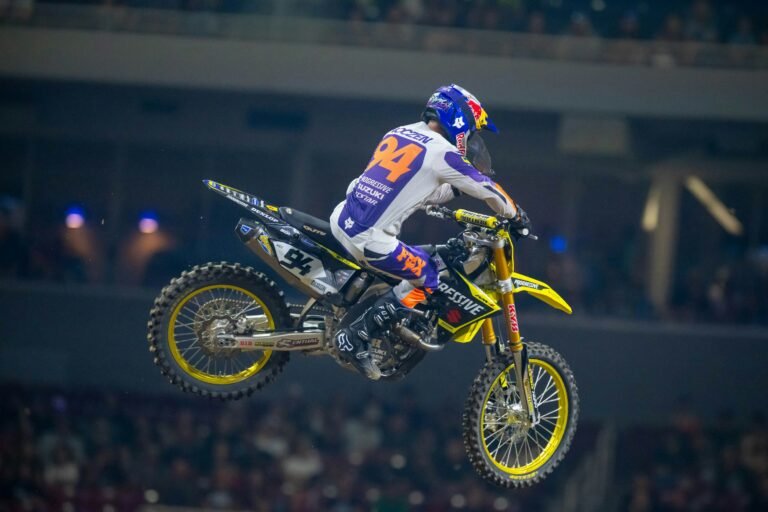SMX Review: Insights from Riders on Trust, Testing, and Performance
ST. LOUIS, MO — As the SuperMotocross (SMX) series approaches its third year, riders shared their perspectives on the evolving landscape of the sport during a recent event at the Dome.
Trust in Suspension:
Top riders emphasized the importance of trust in their relationships with suspension technicians. “Your suspension guy has to have a level of confidence,” stated veteran racer Chad Reed. He praised technician Mark, highlighting that open communication fosters a collaborative environment for making adjustments. “I think that’s half the battle,” Reed noted, reiterating the need for a skilled technician who listens and validates rider feedback.
Mixed Feelings on SMX Format:
Regarding the SMX format, Reed expressed ambivalence. “I’m just along for the ride at this point,” he admitted, acknowledging the series’ potential challenges. While praising the diverse venues, he reported a lower than expected turnout for the St. Louis race, contrary to the season’s previously high attendance. “It’s something different, so I’m fine with it,” he added.
Suzuki’s Return and Future Plans:
The reintroduction of Suzuki’s Japanese engineering team was a highlight for many in the paddock. Riding standout Ken Roczen noted, “They were in Charlotte and…working on the electric start.” He anticipated that Suzuki’s testing efforts would yield results for the 2026 Supercross series, indicating optimism about the brand’s direction.
Competitive Bike Observations:
When asked about standout bikes in the field, Roczen pointed to Eli Tomac’s Yamaha and Jett Lawrence’s machine as particularly impressive. “The Yamaha as an overall package looks to be good,” he assessed, acknowledging individual riding styles affect performance perceptions. “Each rider feels different things on their bikes,” he concluded, emphasizing the need for personal fit in machine dynamics.
Conclusion:
As the SMX series continues to develop, insights from riders highlight crucial elements such as trust in technical relationships, ongoing adaptation to the new racing format, and competitive machine assessments, all contributing to an evolving motorsports landscape. The future looks promising as teams push forward with both innovation and rider support.



